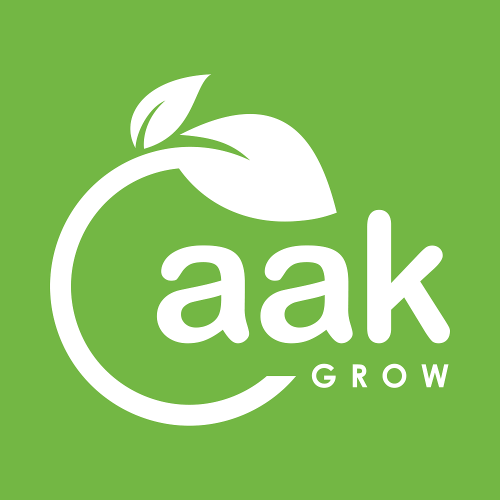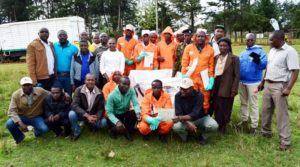What is glyphosate?
- Glyphosate is one of the herbicide active ingredients approved for weed management on crops and non-crop uses globally. Unlike most herbicides, glyphosate controls both grass and broadleaf weeds, making it one of the most important tools for weed management.
- Glyphosate-based herbicides have been used safely and successfully for over four decades worldwide, and are a valuable tool to help farmers deliver crops to markets and practice sustainable farming by reducing soil tillage, soil erosion and carbon emissions.
- There are more than fifty glyphosate-containing herbicide products registered by the Pest Control Products Board (PCPB) for use in Kenya.
What is the concern of the Kenyan public?
- In 2015, the International Agency for Research on Cancer (IARC) classified glyphosate as “probably carcinogenic” in humans (Category 2A). IARC also put common every day substances like red meat and hot beverages, professions like ‘being a barber’ and activities like burning of wood in the same category.
- However, three other World Health Organization (WHO) bodies have reached contrary conclusions including: the World Health Organizations International Programme on Chemical Safety1, Joint FAO/WHO Meeting on Pesticide Residues (JMPR)2, and Guidelines for Drinking-Water Quality3.
- The classification by IARC of glyphosate as a probable carcinogen has however triggered public interest on the safety of the molecule, including the on-going court cases in the US that have elicited global attention.
- This pressure is gradually spilling over to Africa, including Kenya, thus threatening the availability of a safe and effective active ingredient for weed control and sustainable agriculture.
- The Agrochemicals Association of Kenya (AAK) is aware of the jury’s verdict in the glyphosate related cases in the US. The cases are not yet concluded, as the verdicts have been appealed.
- The pesticide industry in Kenya understands the level of concern from the Kenyan public in view of these cases. We wish, however, to point out that there is overwhelming evidence from over four decades of extensive scientific research involving more than 800 studies on the safety of glyphosate, which has led to the conclusions of regulators worldwide that glyphosate is not carcinogenic. This has enabled its approval for use in more than 160 countries globally.
Regulatory decisions outside Kenya concerning glyphosate after the IARC classification
- A number of highly reputable regulatory authorities worldwide have re-evaluated the carcinogenicity of glyphosate after IARC published its classification in 2015. Upon scrutiny of a very large body of scientific evidence and regulatory data (including the information evaluated by IARC), they have concluded that glyphosate is not carcinogenic to humans.
- These include the European Food Safety Authority (EFSA, 2017), the US Environmental Protection Agency (US-EPA, 2016), the Australian Pesticides and Veterinary Medicines Authority (APVMA, 2016), Health Canada’s Pest Management Regulatory Agency (PMRA, 2019), the Brazilian Health Regulatory Agency (ANVISA, 2018) and the New Zealand’s Environmental Protection Authority (EPA, 2016), among others.
- A recent epidemiologic long-term study conducted by the independent National Cancer Institute in the US, which followed over 50,000 pesticide applicators for more than 20 years found no association between glyphosate-based herbicides and cancer.
- In addition, the Joint FAO/WHO Meeting on Pesticide Residues (or JMPR) concluded in 2016 that glyphosate is unlikely to pose a carcinogenic risk to humans from exposure through the diet.
Glyphosate has been evaluated and approved in Kenya
- Pesticides are amongst the most regulated items in the world.
- PCPB is the body mandated by the Pest Control Products Act (Cap 346) to regulate the importation, manufacture, exportation, transportation, storage and use of pesticides.
- All pesticides registered for use in Kenya, including glyphosate, go through a rigorous risk assessment prior to approval by the PCPB. The assessments are based of toxicological, eco-toxicological, environmental fate and residue data submitted in support of these products by the applicants in accordance with the pest control products (PCP) regulations.
- In addition to the local approval process, Kenya is a signatory to key international conventions on chemical safety, such as the Rotterdam Convention (for prior informed consent on import and export of chemicals) and the Stockholm Convention (on persistent organic pollutants), among others. These conventions develop lists of banned and restricted chemicals following developed guidelines and criteria for hazard and risk assessment for the protection of the safety of people and the environment. All parties to these conventions should adhere to the conclusions of the conventions. The Pest Control Products Board is the Designated National Authority (DNA) for pesticides for these conventions.
aak-GROWposition on glyphosate
- On the basis of current scientific evidence, glyphosate-based products pose no undue health risks, including cancer, to the Kenyan public. This is in line with the conclusion of regulatory authorities around the world.
- As a general precaution, aak-GROWadvocates for use of personal protective Equipment when using any pesticide, as guided by the Pest Control Products labelling guidelines, in order to reduce exposure. The industry has been active in training farmers and agro-dealers, including spray service providers, on safe use of pesticides. These efforts are geared towards protecting communities and the environment against potential hazards of chemicals.
- We direct any persons wishing to get further information on this subject to contact PCPB/relevant authorities. As industry, we remain open and available to discuss relevant concerns with any interested stakeholders and continue to pledge our partnership with the nation’s government and food value chain stakeholders and remain steadfast in our commitment to Kenyan Farmers to not only access safe and effective plant science technology and stewardship throughout the value chain.
Chief Executive Officer
The Agrochemicals Association of Kenya
- http://www.inchem.org/documents/ehc/ehc/ehc159.htm
- http://www.who.int/foodsafety/jmprsummary2016.pdf?ua=1dd
- https://www.who.int/water_sanitation_health/water-quality/guidelines/chemicals/glyphosateampa290605.pdf?ua=1
Agrochemicals Association of Kenya (AAK)
Cooper Centre, Kaptagat Rd., off Waiyaki Way, Kangemi.
P.O. Box 13809 – 00800, Nairobi, Kenya
Wireless Lines: 020 2464812/ 020 2464811
Mobile Nos: +254 734 – 447777; +254 710 – 447777
Email: info @ agrochem.co.ke
Website: www.agrochem.co.ke


